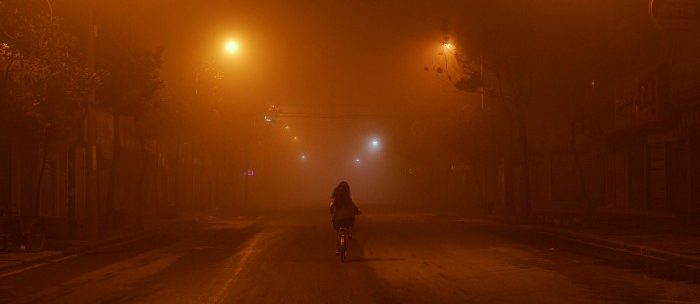Although the refugee situation is not so much in the spotlight in 2017, displacement and diasporas remain important topics in many of the showcased Berlinale-Films, and are worthier of discussion than ever. Perhaps surprisingly, this is especially true in the Chinese context.
”Crossing borders” is something that happens quite literally in many of this year’s films, be it to avoid trials (Adriana’s Pact), to work (God’s Own Country, When the Day Had No Name, Vaya, Alyam Alyam, Mr. Long), to flee persecution (Honeygiver Among the Dogs, Combat Au Bout de La Nuit), or to do the right thing (I Am Not Your Negro).
It might not be immediately obvious how the issue of migration and physical displacement relates to the Chinese context, but if we consider the geographical distance as well as the cultural, linguistic and economic differences between Chinese provinces (most of which are the size of an average European country), migration even within the Chinese mainland is not all that different from migration between countries. Because of the large economic gap between coastal and inland parts of the country, rural farmers often move to urban areas in order to be able to send money back home, like Ciao Ciao (Ciao Ciao), Lao Liu (Ghost in the Mountains) and Ying Ling (Almost Heaven). They are often excluded from the Hukou household registration system and as such are excluded from many basic social services to which native urbanites have access. This creates a large population of “ghost citizens” in any major Chinese city. Meanwhile, children and teenagers are left behind in the native villages, like Stonehead (Stonehead), Lynn (The Foolish Bird) and the young boy in Xie Tian’s short film Promise – they are all different faces of the millions of “left-behind children” in China.
My fellow film critics, Megan Spencer (The Guardian Australia) and David Mouriquand (Exberliner), generously shared their views on the issues of migration portrayed in these Chinese films. Megan observed, that “in these films the phone is always there, as a link, a substitute. It is almost frowned upon as well, as at the end of The Foolish Bird, when tossing the phone into the river feels like a liberation from parasites”.
“For those who have to seek work in big cities at an early age as in Almost Heaven, or for those who are left behind, there is a loss of innocence that happens much too quickly,” added David.
